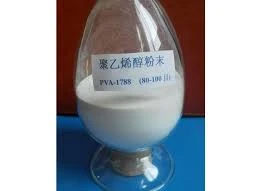The Role of Cellulose Thickener in Various Industries
Cellulose thickeners have emerged as a vital component in numerous industries, with applications ranging from food production to cosmetics and pharmaceuticals. Derived from natural cellulose, a polysaccharide obtained from plant cell walls, these thickeners offer remarkable advantages, including safety, efficiency, and environmental sustainability. This article explores the significance of cellulose thickeners, their mechanisms, applications, and benefits across different sectors.
Understanding Cellulose Thickeners
Cellulose thickeners, such as hydroxypropyl methylcellulose (HPMC), carboxymethyl cellulose (CMC), and microcrystalline cellulose (MCC), are non-toxic, biodegradable, and versatile materials. They possess the unique ability to modify the viscosity of liquids, which is crucial in various formulations. By increasing the thickness of a product, these thickeners affect its texture, stability, and performance—making them indispensable in numerous applications.
Applications in the Food Industry
In the food industry, cellulose thickeners are widely used as stabilizers, emulsifiers, and texture agents. They are essential for enhancing the mouthfeel and viscosity of products such as sauces, dressings, and dairy products. For instance, CMC is commonly employed in ice creams to prevent ice crystal formation, ensuring a smooth and creamy texture. Additionally, cellulose thickeners help improve the shelf life of food products by stabilizing emulsions and preventing separation.
Furthermore, with the rising demand for gluten-free and low-fat products, cellulose thickeners provide a valuable solution. They enable food manufacturers to maintain desirable textures without the use of traditional thickeners like gluten or fats, making products healthier and more appealing.
Role in Cosmetics and Personal Care Products
The cosmetic industry has also recognized the benefits of cellulose thickeners
. They play a critical role in formulating lotions, creams, and gels, where viscosity and texture are essential to consumer satisfaction. Hydroxypropyl methylcellulose, for instance, is popularly used in skincare products for its ability to create a smooth application and enhance the spreadability of formulations.cellulose thickener

Moreover, cellulose thickeners contribute to the stability of cosmetic emulsions, preventing phase separation and extending the product's shelf life. Their safety profile and compatibility with various ingredients make them a preferred choice for formulating personal care items that cater to sensitive skin.
Pharmaceutical Applications
In the pharmaceutical industry, cellulose thickeners serve both functional and therapeutic roles. They are used to improve the viscosity of liquid formulations, enabling controlled release of active ingredients. This property is particularly important in oral solutions and topical gels, where precise dosing and sustained release are necessary for effective treatment.
Additionally, cellulose thickeners are widely employed as excipients in tablet formulations. They assist in binding ingredients together, ensuring uniformity and stability in product manufacturing. The utility of these thickeners in pharmaceuticals underscores their significance not just in enhancing the physical properties of drugs but also in improving patient compliance.
Environmental Benefits
One of the noteworthy advantages of cellulose thickeners is their environmentally friendly nature. Being derived from renewable resources, they align with the growing trend towards sustainability in various industries. Their biodegradability contributes to reduced environmental impact, making them a preferred choice for companies seeking to enhance their sustainability profiles.
Conclusion
In conclusion, cellulose thickeners are indispensable in modern formulations across multiple industries. Their ability to enhance texture, stability, and performance makes them vital for food, cosmetics, and pharmaceuticals. As consumer demand for safe, effective, and eco-friendly products continues to grow, the role of cellulose thickeners will undoubtedly expand, paving the way for innovative applications that benefit both manufacturers and consumers alike. The future of cellulose thickeners is bright, as they represent a synergy between nature and technology, contributing to a more sustainable and health-conscious world.
-
Rdp Powder: Key Considerations for Wholesalers in the Building Materials IndustryNewsJul.08,2025
-
Key Considerations for Wholesalers: Navigating the World of Hpmc - Based ProductsNewsJul.08,2025
-
Hpmc Detergent: Key Considerations for WholesalersNewsJul.08,2025
-
Key Considerations for Wholesalers: China Hpmc For Tile Adhesive, Coating Additives, Concrete Additives, and MoreNewsJul.08,2025
-
Crucial Considerations for Wholesalers: Navigating the World of Construction MaterialsNewsJul.08,2025
-
Key Considerations for Wholesalers Sourcing Additive For Cement, Additive For Concrete, Additive For Putty from Additive Manufacturer Shijiazhuang Gaocheng District Yongfeng Cellulose Co., Ltd.NewsJul.08,2025




